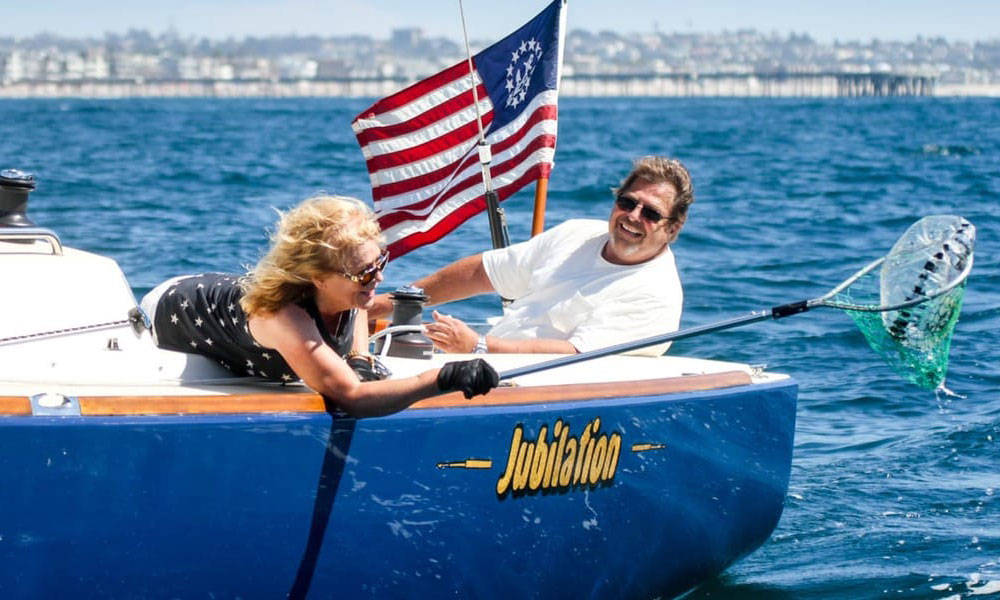
Sailing Association Launches “Pollution Purge” Initiative
The American Sailing Association is encouraging the public to pick up plastic while boating—and making cleanup a part of its member schools’ curricula as well.
As ocean waters become overwhelmed with plastic trash—8 million tons of it annually, according to one estimate—the American Sailing Association has been making the cleanup effort a key part of its relationship with members, and encouraging the public to get into the act too.
ASA, which represents more than 350 sailing schools globally, launched Operation “Plastic Pollution Purge” last month to spotlight the scope of the problem. For instance, ASA points to the 80,000-ton Great Pacific Garbage Patch in the Pacific Ocean between Hawaii and California, and the hundreds of thousands of birds and marine animals choked by plastic annually.
Pretty much everywhere you go, there’s plastic in the water.
To help stem the tide, ASA is encouraging boaters to collect trash while they’re out on the open water this summer. Outreach to news media has helped get the word out—an ASA spokesperson says that 17 local TV outlets have covered the initiative since it kicked off June 16. And the association has been encouraging people to spread the word on social media as well.
But ASA wants to make plastic cleanup not just a public-service effort but an integral part of the training its member schools provide, said ASA Affiliate Representative Elbert Ashbaugh III. “We have so many people out on the water, about one to two thousand students a week with all our various affiliate schools, and they’re in small boats,” he said. “Sailboats are usually not too big, and they’re close to the water, and what we’re finding is that pretty much everywhere you go, there’s plastic in the water. We thought, you know, maybe we should do something about that.”
And it can do quite a bit, because ASA certifies schools and instructors, and establishes the elements of the curriculum that sailing students take—the association recently certified its 500,000th student. ASA’s summer initiative is tied to its recent decision to make pollution awareness one of those elements. Though schools have always discussed pollution, Ashbaugh said, the new standards will provide more direct guidance to schools to avoid bringing plastic materials onboard whenever possible and to clean up floating plastic when boaters encounter it.
Ashbaugh said that the new training materials, which will be distributed later this year, will also encourage students and instructors to spread the word to friends and family who go near the water, even if they don’t step aboard a boat.
“Mylar balloons, people don’t realize those aren’t going to heaven,” he said. “At night, winds along most coastal places on earth actually flow out toward the sea. So if you have a party on Friday night or Saturday night, those mylar balloons will end up out in the ocean on Sunday. If you take one of our classes, we will point this out and maybe you’ll tell your friends, and people will be a little more careful about loose plastic.”
(Handout photo)






Comments